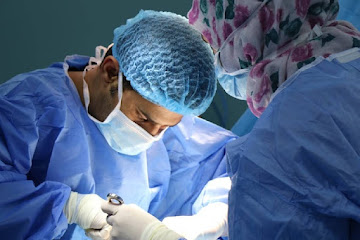It's similar to the speed of an automobile when it comes to heart rate. People want something that isn't too rapid, sluggish, or irregular. In reality, most of the time, people don't need to think about heart rhythm or speed. And, unless something out of the ordinary is happening, they are probably utterly ignorant of what their heart is doing.
The best cardiac surgeon in India, Dr. Sujay Shad at Sir Ganga Ram Hospital, explains: the heart is responsible for circulating nutrient-rich blood and oxygen throughout the body. When it fails to do its job properly, the entire body suffers. Since the heart function (cardiac output) is closely tied to heart rate and stroke volume (the quantity of blood pumped out with each beat), heart rate is important to this process.
What is a Heart Rate?
Normally, heart rate ranges from 60 to 100 beats every minute. Bradycardia ("slow heart") is slower than 60 beats per minute; tachycardia ("fast heart") is more than 100 beats per minute. However, other doctors say a healthy resting heart rate is closer to 50 to 70 beats per minute. Whatever is regarded as normal, it is crucial to understand that a healthy heart rate will fluctuate based on the scenario.
- To identify heart rate, first, locate the pulse.
- The side of the neck and the wrist's front part is the most accessible locations.
- Then, in 30 seconds, note the number of beats. This is one's heart rate multiplied by two.
Furthermore, feeling the pulse can tell if the rhythm is regular, irregular, or a combination of the two.
When Does the Heart Rate Become Slow?
A slow beat in healthy adults might be caused by the following:
- Not being physically fit
- Taking certain medications
- Sleep (but heart rate may increase during REM sleep).
A slow pulse, on the other side, can be an indication of sickness, such as:
- Heart attack or another type of heart disease (sick sinus syndrome)
- Certain diseases (Lyme disease and typhoid fever)
- Hyperkalemia (high potassium levels in the blood) is caused by an underactive thyroid.
What Causes Fast Heart Rate?
Healthy persons might have a quick heart rate due to the:
- Exercising, especially if it is strenuous or linked with dehydration.
- Frightened or agitated - while a heart rate of more than 100 may be deemed "abnormal”.
- Using a stimulant like coffee or cocaine when pregnant.
A rapid heart rate is connected with the following diseases:
- Most infections or almost any cause of fever.
- Heart issues, such as cardiomyopathy (a condition where the heart's pumping function is decreased), ventricular tachycardia, or atrial fibrillation
- Particular medications ( EpiPen)
- Hypokalemia (when there are low potassium levels in the blood)
- Having an overactive thyroid gland or taking too much thyroid medication
- Anemia
- Asthma or other respiratory problems.
Why Are Regular Heart Check-ups Important?
Many heart disorders and associated risk factors might go unnoticed if routine heart checks and health tests are not performed. Preventative healthcare may assist the individual and their physicians in staying on top of their health and identify any health concerns before they become more serious. Regular heart checks will allow an individual to:
- Early detection of illnesses or diseases
- Reduce the likelihood of becoming sick
- Get the correct therapy as soon as possible
- Improve one's overall health
- Depicts one's health over time
- Minimize overall healthcare expenses
- Receive the most recent medical information as well as cutting-edge technology and practices
- One can develop a better bond with their doctor.
What Can a Person Expect During Their General Check-up?
Even if a person does not already have a cardiovascular issue, regular check-ups are an excellent method to discover possible risk factors and avoid heart issues. During a heart screening, the physician will do a few tests to look for these risk factors and then choose the best treatment. Treatment methods range from dietary modifications to medicines. One can expect the following at their check-up:
- Blood pressure test - to diagnose elevated blood pressure, a blood pressure test can be conducted. High blood pressure puts more strain on the heart and can damage the arteries severely. If left untreated, blood clots can form, leading to heart failure or a heart attack.
- Cholesterol screening - starting in their twenties, people should get their cholesterol tested once every 4-5 years. Since high cholesterol has no symptoms, they can spot it early.
- A blood glucose test - determines the quantity of sugar (glucose) in the bloodstream. A glucose test can also aid in the diagnosis of diabetes. If left untreated, it can lead to stroke and heart disease.
In addition, if one needs heart surgery and wonders about, heart surgery cost in Delhi, one must understand that it all depends on the type of surgery, doctor’s qualification, specialization, and their years of experience. It will also vary from patient to patient.
Therefore, it is recommended to choose a suitable heart surgeon in Delhi. If looking for one, one can visit Dr. Sujay Shad, the best cardiac surgeon in India, at Sir Ganga Ram Hospital in Delhi.
He offers all types of heart treatments from minimally invasive to surgical procedures to save the life of his patients with heart issues. Do visit now!


